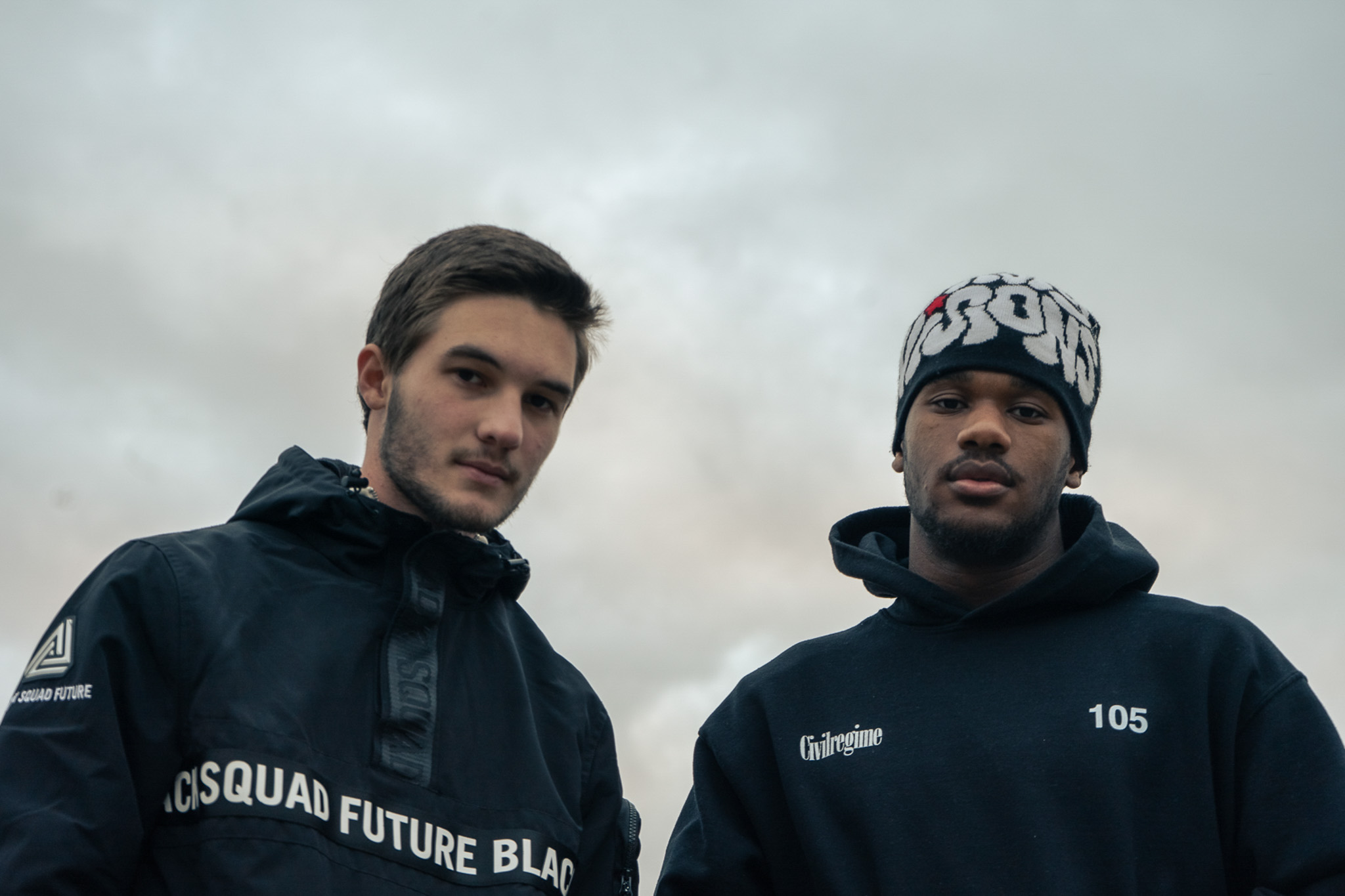Along with homework, exams and late night study sessions, Lars Razor, a senior communication major, and Matija Margetic, a junior film production major, find the time to express their creativity through the art of music. Both transform their feelings and experiences into tunes for listeners with similar journeys.
Razor’s musical journey began at age 5 as he listened to his grandmother, Lillian Jones, a singer from a gospel music band, The Vocalaires.The gospel group performed across the country, from Michigan to Missouri to California. Although she stopped performing before Razor became a teenager, he vaguely remembers attending his grandmother’s rehearsals to sing and play the drums.
“Her voice was raspy and deep,” said Razor. “Most women had difficulties singing in ranges that she sang in.”
Razor now creates hip-hop, R&B and Afrobeats for listeners between the ages of 20 to 40, focusing on self growth and reflection. “Music is like therapy for me,” said Razor. “I make music to stay down to earth.”
Margetic’s musical journey began right before COVID hit. It took his own initiative to learn the basics of music theory and the production of beats. Inspired by American rapper Travis Scott, he leans towards producing original rhythms while still incorporating hip-hop beats. “Through his music I realized hip-hop is more than a beat and rhythmic poetry,” said Margetic. “But also emphasis on sound aesthetics, melody and a journey through the music.”
Razor said that two artists in particular inspired him to start creating his own music. He appreciates French artist Chily’s spontaneous character, as he releases music for fun and with a carefree outlook. On the other hand, Razor enjoys Belgian Hamza’s music because he focuses on love, the challenges of making money, and his ambitions. “His voice is on the higher side,” said Razor. “People think you need to have a deeper voice to rap, but Hamza reminds me that anyone can rap.”
When Margetic creates beats, he enjoys playing around with different sound effects and distant melody lines to stand out from the crowd. “I want to put listeners into my world when I make music,” Margetic said. “I allow listeners to interpret my music in their own ways, allowing them to decide what ‘my world’ is.”
He is a part of multiple songwriting processes such as producing, mixing and mastering, and creates them using FL Studio, a digital audio workstation. His favorite process is producing, as it “feels like magic creating something from nothing.”
Artists may find writing lyrics challenging but Razor prefers to freestyle them and expresses what is in his mind at the moment. “I feel like that makes the music more genuine,” Razor said. He believes that listeners can relate and overall vibe to his music this way.
Angelica Garcia-Ponce, a sophomore social work major commented, “He can put how I’m feeling into a song. It sounds like Bryson Tiller.”
Crafting music at night with dim lights is Razor’s preference to set the mood. He uses GarageBand, a software application that allows users to make music.
Razor’s favorite original line reveals a generous spirit: “Who was there to help you when you were helpless? I gave you food off of my plate, no stress, I gave you the shirt off of my back, and for you, I’d do it all again.” He hopes that his lyrics allow listeners to walk away feeling invoked.
Collaborating with established artists is a major deal in the music industry as it helps grow your name and learn new strategies. The two of them have had the opportunity to experience that success.
Razor enjoys working with various artists as he explores different genres of music while Margetic sees it as an opportunity for growth and feedback. “Listening to my first beats after a few months and shaking from cringe is great,” Margetic said, “because I know I have improved.”
Both students have goals with their music careers they wish to pursue. Razor hopes to create a series of songs into a short film, telling a story. Margetic wishes to make a name for himself, since “producers do a lot of heavy lifting in modern music, but their names don’t nearly get as much spotlight as they deserve.”
The pair leaves listeners with advice for upcoming artists. “Make music that is genuine to you, but ultimately, have fun.” said Razor. Margetic said, “Be original, experiment, make mistakes, make connections.”




